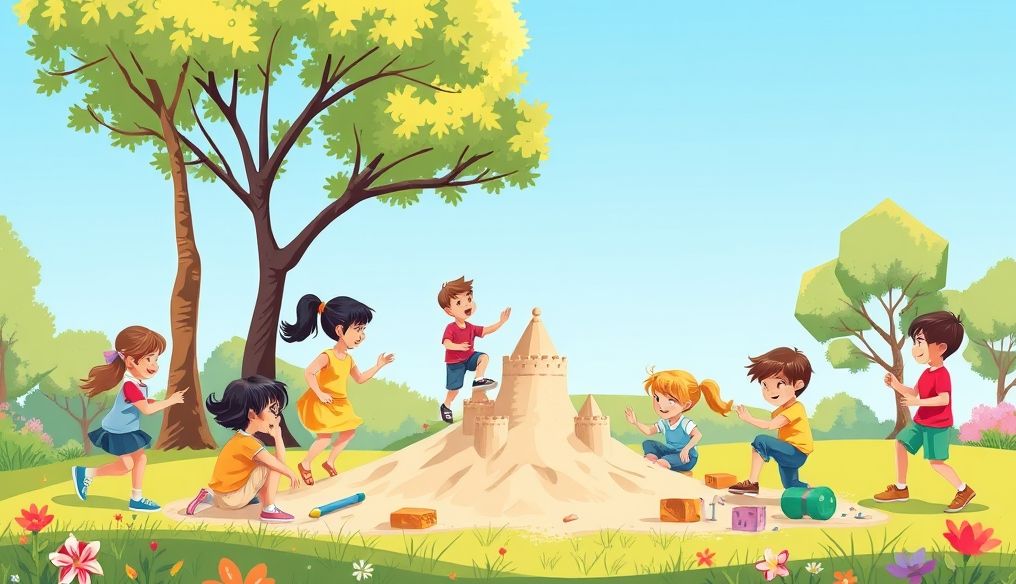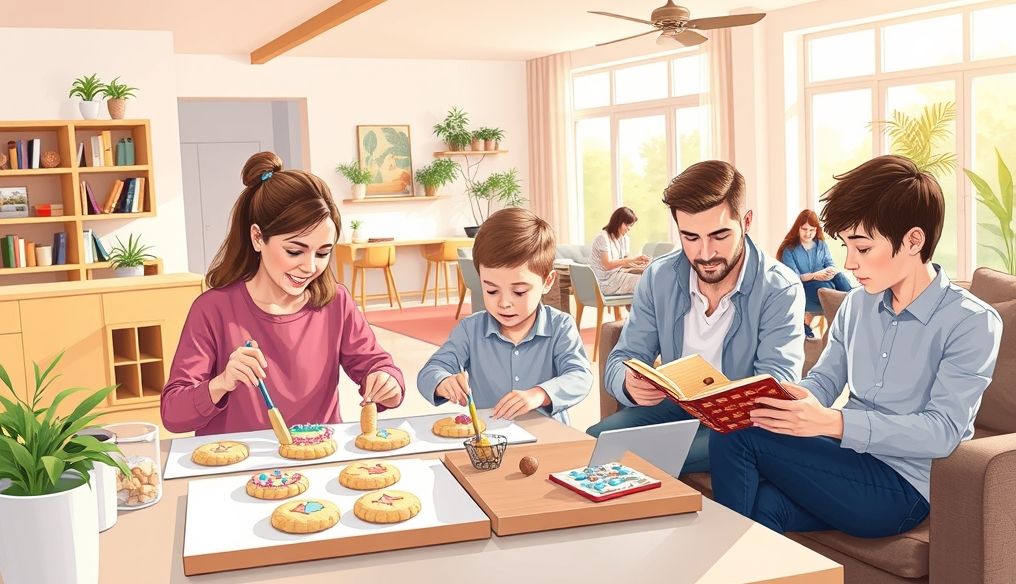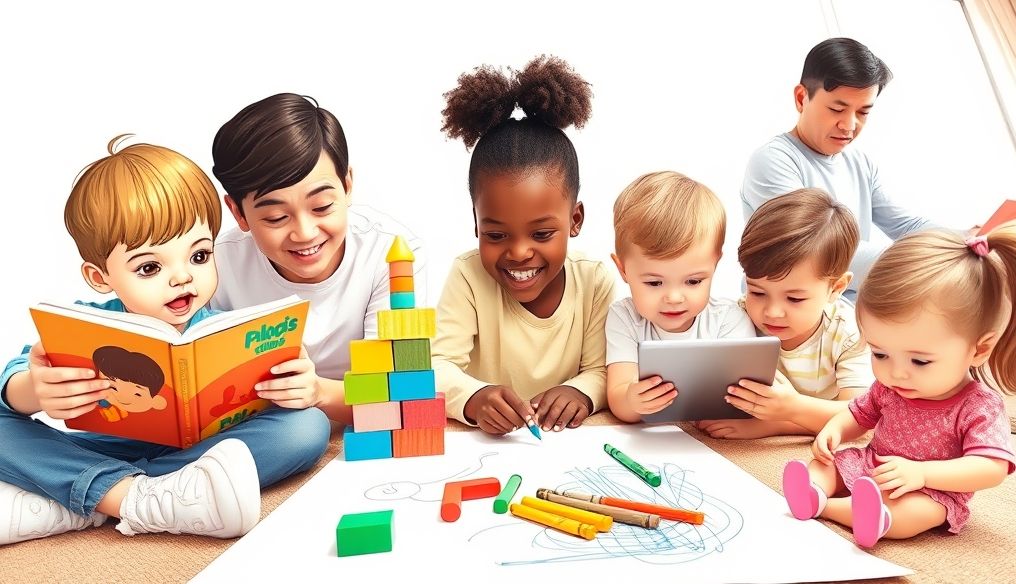Why is Play Important for a Child's Personality Development and Future?
Play is the primary activity that children engage in, and it's not just a means of amusement and entertainment. It's a powerful and influential tool in their overall development. Through play, children discover the world around them, learn new skills, express their feelings, and interact with others. Understanding the importance of play helps parents and educators provide a stimulating and supportive environment for children, contributing to their healthy and balanced growth.
Chapter 1: Play and Physical Development
Active play, such as running, jumping, and climbing, promotes a child's physical development. It strengthens muscles and bones and improves motor coordination and balance. In addition, play helps burn excess calories, reducing the risk of obesity and heart disease in the future.
- Examples of games that promote physical development:
- Running and jumping rope
- Playing ball games of all kinds
- Swimming
- Riding a bike
Chapter 2: Play and Cognitive Development
Play stimulates creative thinking and problem-solving. When children play, they have to think strategically, make decisions, and find solutions to the challenges they face. Games that require planning and organization, such as building blocks or solving puzzles, particularly enhance these skills.
Imaginative Play
Imaginative play, such as role-playing or creating fictional stories, expands a child's imagination and enhances their ability to think abstractly. Through imaginative play, children can experience different roles, understand the perspectives of others, and develop their social and emotional skills.
Statistic: A study conducted in 2019 showed that children who regularly participate in imaginative play perform better on creativity and problem-solving tests.
Chapter 3: Play and Social Development
Playing with others teaches children important social skills, such as cooperation, communication, sharing, and healthy competition. Children learn how to negotiate, resolve conflicts, and respect the rules of the game. Through play, children gain self-confidence and learn how to build strong friendships.
Tip: Encourage your child to play with other children of different ages and backgrounds. This will help them develop their social skills and adapt to different situations.
Chapter 4: Play and Emotional Development
Play provides children with a safe outlet to express their feelings, whether it's happiness, sadness, anger, or fear. Through play, children can process their difficult experiences and develop mechanisms for coping with stress and anxiety. Games that allow children to express themselves creatively, such as drawing, music, or acting, are particularly beneficial for emotional development.
"Play is the child's work." - Maria Montessori
Chapter 5: Types of Play and Their Impact on Development
Games vary and differ in their goals and effects on child development. It's important to provide a variety of games that meet the child's different needs and contribute to their comprehensive growth.
- Sensory Play: Stimulates the senses and helps children explore the world around them.
- Motor Play: Promotes physical development and motor coordination.
- Cognitive Play: Stimulates creative thinking and problem-solving.
- Social Play: Teaches children important social skills.
- Creative Play: Allows children to express themselves creatively.
Chapter 6: The Role of Parents and Educators in Supporting Play
Parents and educators play a crucial role in providing a stimulating and supportive environment for children to play. They should provide a safe and suitable space for play, provide a variety of games and materials, and encourage children to play freely and explore the world around them. In addition, parents and educators should participate in play with children, which strengthens the relationship between them and contributes to their positive growth.
Remember: Play is a fundamental right of the child. Give your child the time and space to play, and watch them grow and develop before your eyes.
Chapter 7: The Impact of Technology on Play
With the proliferation of technology, it's important to consider the impact of digital devices on children's play. While some digital apps and games can be educational and beneficial, excessive use can lead to health, social, and emotional problems. Parents should set limits on children's use of digital devices and encourage them to participate in other physical and social activities.
Chapter 8: Play and its Importance in Different Age Stages
The nature and importance of play changes as a child gets older. In early childhood, play is primarily sensory and exploratory. In preschool, play becomes more imaginative and social. And in school, play becomes more organized and competitive. It's important to understand the child's different needs at each age stage and provide appropriate games and activities.
Conclusion
Play is not just a recreational activity; it is a vital tool for the development of a child's personality. Through play, children grow physically, mentally, socially, and emotionally. So, let's support our children and encourage them to play freely and explore the world around them.
``` Title: Why is play important for child development?



